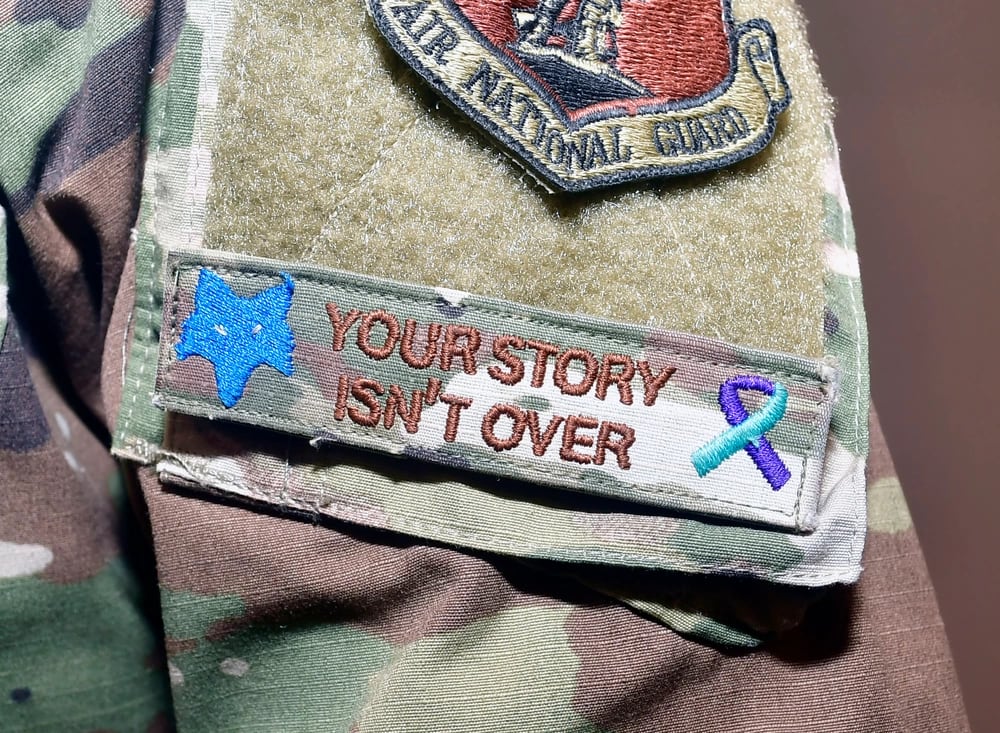Troops, veterans and family members experiencing suicidal thoughts can call or text the 24-hour Suicide and Crisis Lifeline at 988 or visit VeteransCrisisLine.net.
Air Force Secretary Frank Kendall indicated Wednesday that the service is still struggling to curb suicides across the force, calling the number “fairly stable” despite efforts to emphasize mental health and bolster firearm safety.
“I get an email every time there’s a suicide in the force, and I’ve watched the weekly numbers to see how we’re doing,” Kendall said during a live-streamed discussion with Chief Master Sergeant of the Air Force JoAnne Bass. “Unfortunately, it’s fairly stable.”
“Every one of these incidents could have possibly been prevented,” he added.
It’s the latest look at the Air Force’s yearslong battle to stem a suicide crisis it shares with the other armed forces and the American public at large.
RELATED

Twenty-four airmen died in suspected suicides in the first three months of 2023, according to the Pentagon’s most recent quarterly update. That’s on par with quarterly trends across much of the past two years.
Ninety airmen in the active duty force, Air Force Reserve and Air National Guard are thought to have died by suicide in 2022, according to Pentagon data. That number is unconfirmed until the military finishes investigations into the circumstances of each person’s death.
If that number holds, it would be higher than the 71 suicides confirmed in 2021, but lower than in 2020 and 2019, when 110 airmen took their own lives.
Around 25 of every 100,000 troops die by suicide each year, Kendall noted. That’s compared to the national rate of 15 suicides per 100,000 Americans, as reported by the U.S. Centers for Disease Control and Prevention.
“It is something that can happen in your community … and we all need to be aware of it,” Kendall said.
Kendall’s comments come as the Pentagon begins to roll out new policies designed to encourage troops to self-report mental health concerns, including suicidal ideation, and make it easier for them to receive care.
Under the “Brandon Act,” part of a 2021 law that the Pentagon is implementing this year, troops can ask their commander or supervisor for an expedited referral to mental health services.
Service members can seek help for any reason and do not need to provide a reason for the referral. Commanders and supervisors must honor those requests and set up an appointment with a mental health clinic by the end of the next day.
“Where I found the Brandon Act helpful is … it really triages you,” Bass said. “You get a faster ability to … see the mental health provider.”
Leaders can still refer troops to mental health services without being asked, and troops can still seek care without going through their chain of command.
The Air Force has also launched a team of around 60 people to discuss ways to make troops and their families more resilient.
Ideas include turning a localized suicide prevention program, known as “ASIST,” into a service-wide initiative. The two-day training, created by the advocacy group LivingWorks, teaches participants how to identify when someone is at risk of suicide, intervene and make a plan to keep them safe.
Bass also called for the creation of on-base wellness centers that bring together therapists, chaplains and other resources under one roof.
Those reforms would build on past efforts to distribute more gun locks, which can slow a person’s access to their lethal firearm; create local wellness teams that understand a particular base’s unique stressors; make mental health resources more visible; defuse the negative stigma around asking for help, and more.
“Those things are happening right now,” Bass said. “I look forward to, in the next several weeks, being able to … share them with the field.”
The Air Force is also refining its training for leading through mental health crises and accessing those services, she said.
The service is preparing to make professional development seminars, known as “foundations” courses, mandatory for enlisted airmen. Those will teach airmen how to navigate difficult conversations around issues like mental health, among other lessons in leadership.
Kendall and Bass encouraged airmen and guardians to reach out to people they trust, stay engaged in activities they enjoy, embrace healthy habits — and seek professional help when needed.
“Mental health is health, and it needs to be treated that way,” Kendall said. “It’s a demonstration of … courage and strength to go ask for help when you need it.”
Rachel Cohen is the editor of Air Force Times. She joined the publication as its senior reporter in March 2021. Her work has appeared in the Washington Post, the Frederick News-Post (Md.), Air and Space Forces Magazine, Inside Defense, Inside Health Policy and elsewhere.





